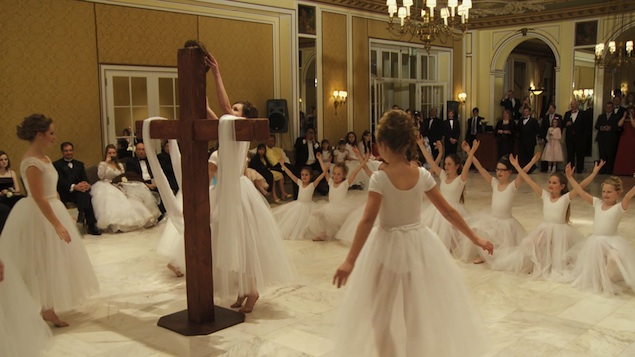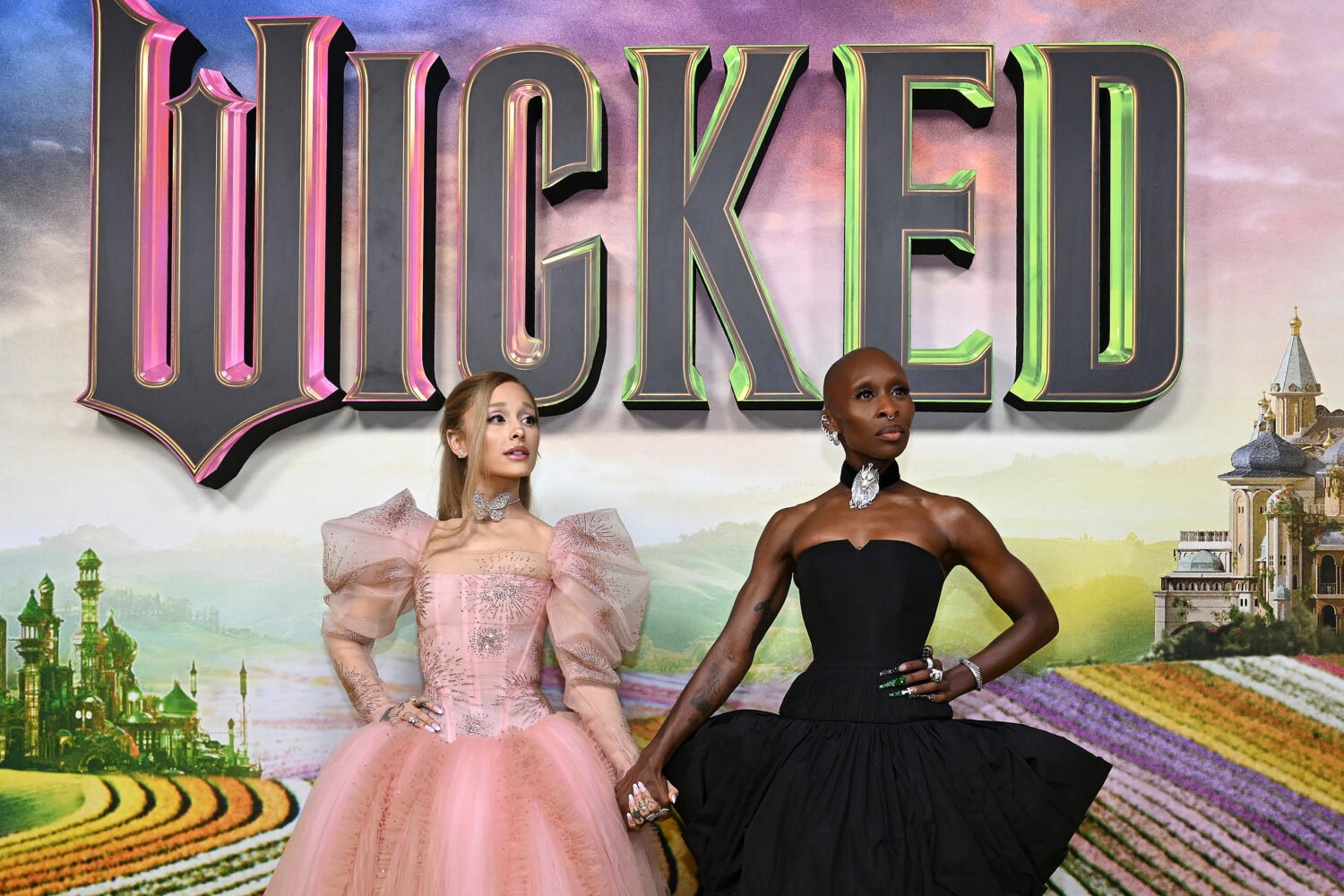Playing Thursday, June 21, at 5:30 PM and Saturday, June 23, at 1 PM
A Girl Like Her opens with a series of iconic ’50s-
and ’60s-era scenes: We watch a hand pour a Campbell’s soup can full of
water into sludgy
soup concentrate, three smiling boys race towards a powder blue
station wagon, and a pretty woman with a shellacked hairdo
slide a foil-topped pan into an oven. Gradually, the jaunty
orchestral soundtrack gives way to voiceover, but the archival
footage just keeps on coming.
In fact, it never stops. Up until the last few minutes of
Ann Fessler’s documentary, we never see the
100 women she interviewed for the film, all of whom gave up children to
adoption between
the years 1945 and 1973. The subjects tell their stories of
being pregnant and unmarried in that era—the parents who worried
more about neighbors’ opinions than their daughters’ wellbeing,
the teachers who treated pregnant girls like cautionary tales,
the revolving-door hospitals where young mothers would go to
give birth then head home and jump back into their lives, as
if returning from summer camp or a church retreat.
Fessler—an adoptee herself—got the idea for her film
after meeting a woman who thought she might be her birth mother. They’re
not related, it turns out, but Fessler was so touched by the
woman’s story that she decided to explore the subject further.
She spent more than a decade pulling together footage and
seeking out subjects for the film, which weaves the womens’ stories
together, telling bits of each tale at a time. Secrecy is a
common theme—many girls were sent away to have the babies alone,
and one women’s parents decided to move when they found out she
was pregnant. Almost all of them felt profoundly isolated
by the experience. They talk about returning to high school and
no longer relating to their classmates. Several of them describe
falling into a sort of enduring emotional stasis—one woman
admits she never told her husband about her first baby; another
says she didn’t deal with the grief of losing her son until she
found him 30 years later.
By mixing up the women’s stories, Fessler smartly
underscores the universality of their experiences, and her use of
archival
footage—the images of the era as it wished to see itself, full
of happy families and perfectly cooked casseroles—contrasts
effectively with the messy realities the women describe. But if
the point is to shed light on a subject that’s been long kept
in the dark, it’s hard not to wonder why the women are never
identified onscreen. Why hide them from us now?
—JESSICA VOELKER
Playing Tuesday, June 19, at 9:15 PM and Friday, June 22, at 10:15 AM
Looking for a seedy, voyeuristic glimpse into the life of a sex worker? You won’t find it here.
Meet the Fokkens works pretty much exactly as the title suggests—as an extended introduction to the flaxen-haired, Dutch identical twin sisters
Martine and Louise Fokken. Yes, they’ve spent
the past 50 year years selling their bodies in Amsterdam’s infamous red
light district. And yes, we do
get the occasional peek into Martine’s brothel bedroom as she
services clients (Louise has given up the trade). But mostly
you see the sisters stepping rather jauntily through their
daily lives, walking the streets in matching outfits, conversing
with each other about their past, and reflecting on old family
photographs and history.
The sisters look back on their careers with an
unflinching, unassuming honesty, and talk proudly of working with up to
ten
clients a day, many of them priests and other religious
leaders. Martine and Louise take care to point out that most men come
looking for some sort of momentary intimacy from them—a soft
embrace, a person to hold—as opposed to a simple roll in the
hay. Things get heavier as the sisters dive into their rocky
relationships with their father, their (now ex) husbands turned
pimps, and children, but the documentarians are careful never
to cast the sisters in the downcast, sympathy-demanding light
so often found in American cable docs.
The film seems to skimp on the parts of the Fokken
story we might be most interested to hear, namely how they broke free
from
their pimps and started their own brothel. And those looking
for a context to place the Fokkens in, or even a general understanding
of the legalized sex trade at large, will be disappointed by
the lack of statistics and narrative background. Instead, the
Fokkens are allowed to tell their own story, in their own words
and in their own order of importance, with little interference
from directors
Gabriëlle Provaas and
Rob Schröde. As the credits fade in on the
69-year-olds laughing and playing in the snow, we’re left with a sense
that the Fokkens aren’t
ashamed of the life they’ve lived. That may be hard to stomach
for an American audience, but these cheerful, free-spirited
sisters don’t care. Which might, dare I suggest it, be a reason
for said American audience to stop judging them and their
fellow sex workers so harshly.
—SARAH ZLOTNICK
Playing Tuesday, June 19, at 12:15 PM and Wednesday, June 20, at 8:30 PM
After the last scene of
Mirjam von Arx’s
Virgin Tales, the director posts a few statistics
onscreen. The film explores the purity oaths taken by young girls in the
evangelical
faith, and after spending an hour and a half showing the
genesis and growth of the practice, von Arx points out that girls
who take the oath are no more likely than those in their age
group who don’t take it to have sex before marriage. They are,
however, far more likely to do so without condoms or other
birth control.
But that epilogue is the only time when the director explicitly shows her hand as to her feelings about what she’s documenting,
and even that’s simply a cold statistic. The fascinating thing about
Virgin Tales is that it’s a documentary made by
someone who likely has strong feelings about the issue, yet someone
absolutely opposed
to her position could likely watch the film and, for the most
part, feel it accurately represents their feelings, as well.
Even-handedness is the hallmark of von Arx’s work here, and
it’s a breath of fresh air in an era when so many filmmakers treat
documentaries as a bully pulpit.
The film centers on the family of Randy and Lisa
Wilson, a couple in Colorado Springs with seven children, five of them
daughters.
Randy, a national field director for the Family Research
Council, started the concept of the Purity Ball in 1998, and the
phenomenon has spread across the United States and even to
Europe, with young women donning dresses that look suspiciously
like wedding gowns and taking oaths to abstain from sex until
marriage. Their fathers, meanwhile, vow to shield and protect
their daughters, and often put purity rings on their fingers in
a ritual that feels close—to an uncomfortable degree for some
viewers, one suspects—to the marriage ritual itself.
A number of the Wilsons’ children are already married
off, a couple are yet too young, and one, perhaps the focal point of
the film, is 20 years old and still living at home; God has not
yet delivered her husband to her. (A big part of the purity
vow is the notion that because they are committing themselves
to God’s plan in being chaste, he will be benevolent and
deliver a husband.)
There are touching scenes here, including a tearful
centerpiece in which the Wilson’s youngest boy, a future preacher or
lobbyist
to be sure, delivers a heartfelt, seemingly impromptu address
at the dinner table declaring his love, devotion, and admiration
for his family. The Wilsons are a family tightly bound
together, and they give von Arx incredible access to personal moments
of their life that put the strength of their faith and familial
bonds on display.
The director sticks with them for a year, juxtaposing
family life with their father’s political life with the FRC, subtly
bringing up the political issues without ever overstating them.
Ultimately, anyone who supports the evangelical approach to
sex will find much to support their way of thinking here. Those
on the other side will likely find the patriarchal nature
of the practice, which seems to encourage the notion that a
woman’s role is as a wife and mother above all else, to be appalling.
But because the film documents rather than demonizes, the
issues become clear and unclouded for everyone watching, and make
this the sort of film more documentaries should aspire to be.
—IAN BUCKWALTER















